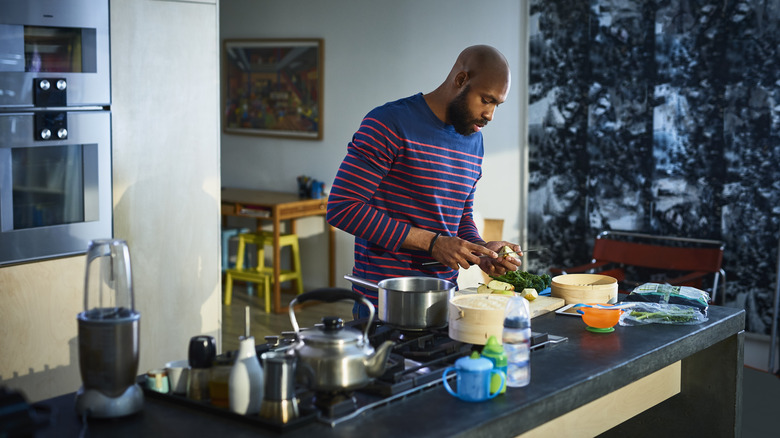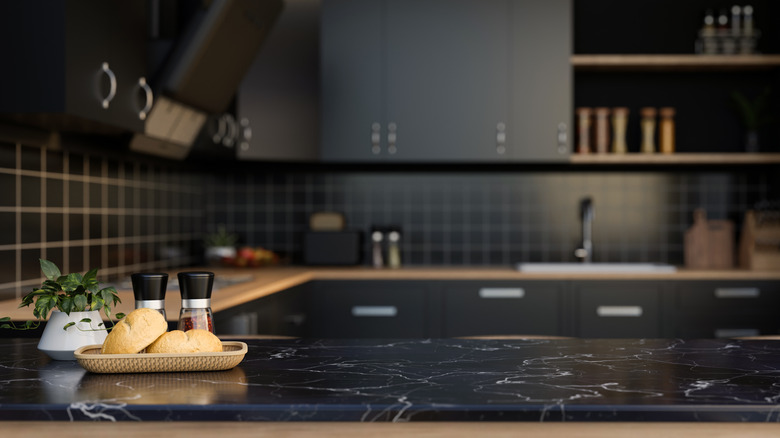The Stain-Resistant Countertop Material That's Built To Last
A countertop can truly make or break the overall aesthetic of your kitchen, setting the tone of the entire space. When choosing the perfect material, questions you never thought you'd ask yourself come up, like whether quartz or granite is the better fit for your kitchen. While style and personal taste certainly play a role, practicality is just as important. You should consider which material is most heat-resistant and ask whether it's easy to clean. After all, any home cook knows that spills, splatters, and messes are an inevitable part of kitchen life. To make finding a durable, stain-resistant countertop material easier, Food Republic consulted Lexie Saine from Lexie Saine Design, who revealed that soapstone ticks all the right boxes.
"Soapstone is non-porous, which means spills and oils cannot penetrate the surface the way they can with granite or marble. This makes it inherently stain-resistant without the need for sealing," she told us. Porous means that the surface of the material contains tiny, microscopic holes where liquid, air, and bacteria can leak into. While porous countertops — like marble — are generally considered to be a beautiful (and expensive) option, they're not the most practical choice, making soapstone stand out for its stain-resistant convenience.
Value is another advantage, because "soapstone tends to wear more gracefully ... its longevity is exceptional, making it a practical yet character-rich choice," Saine told us. In other words, soapstone carries all the same natural appeal as other stone materials like granite, but with the added benefit of being far easier to maintain.
Caring for a soapstone countertop
If you do invest in soapstone, there are still specific care requirements to make sure it remains looking fresh and shining. "Once installed, a mineral oil should be applied regularly in the first year to help even out the naturally darkening process," Lexie Saine explained. "After that, occasional touch-ups are enough."
Mineral oils are great for a variety of reasons. Soapstone naturally darkens over time, and the use of mineral oils speeds up and evens out this process, bringing out the stone's rich tones and veining, while giving it a stronger, more consistent look. Also, because soapstone is a soft material, it can scratch very easily, and the use of mineral oils helps to blend imperfections into the surface, making them much less noticeable. In the case of scratching, Saine recommends: "A quick sand with fine-grit sandpaper and reapplication of oil restores the surface."
While vinegar can be used to clean kitchens in some cases, when caring for your soapstone countertops, Saine cautioned that you should "avoid harsh chemicals." We're talking high pH acidic cleaners such as lemon juice, citrus-based cleaners, and low pH alkaline cleaners such as bleach or ammonia-based solutions, all of which can dull the surface of the soapstone, ruining its overall look. To stay on the safe side, look out for a cleaner with a balanced pH level. In reality, you don't need more than a little water and a gentle cleanser to keep your soapstone clean and looking good.


